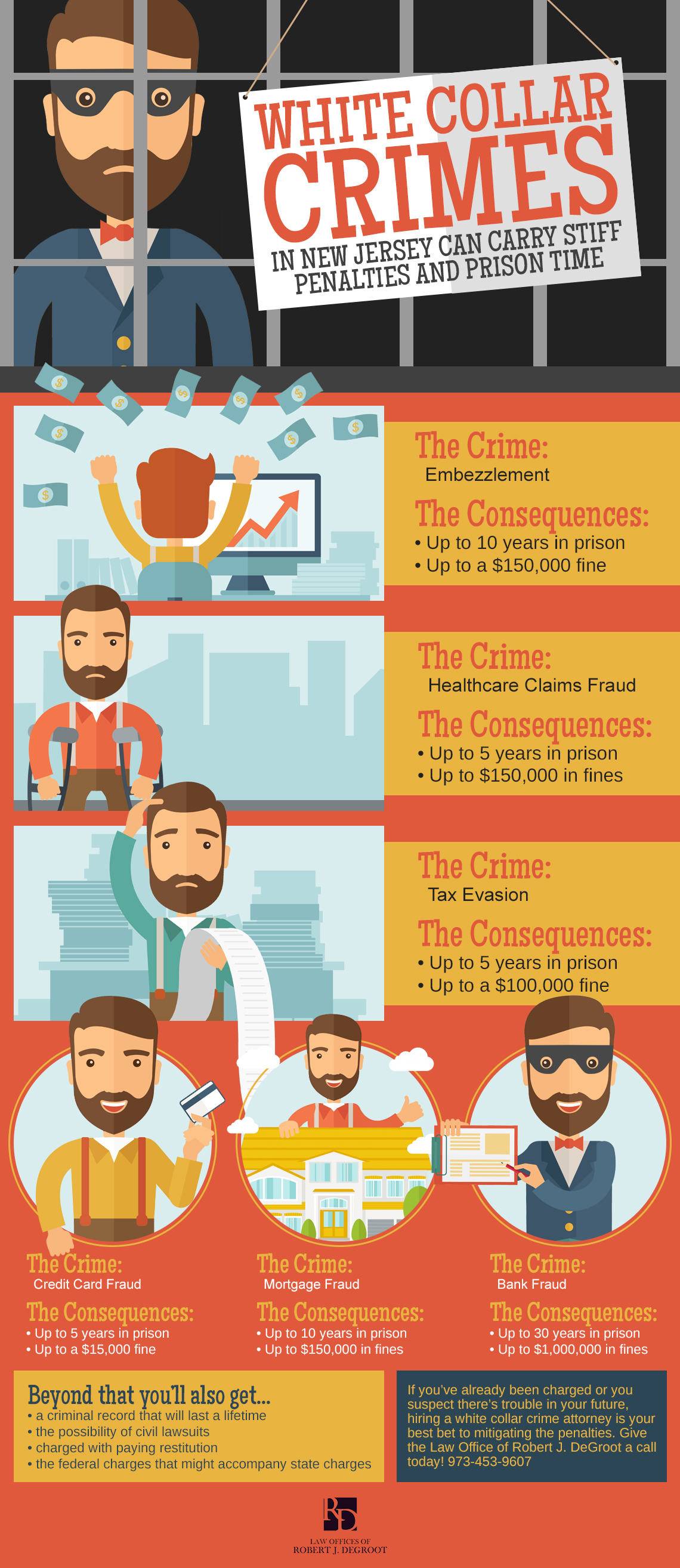The Inner Operation: Analyzing The Frame Of Mind Of Company Offenders
The Inner Operation: Analyzing The Frame Of Mind Of Company Offenders
Blog Article
Material Writer-Steele Raynor
Did you know that behind the refined façade of clerical criminals exists a complicated internet of emotional inspirations? While numerous might assume that these people are driven exclusively by greed, the truth is far more interesting.
Exploring the minds of white collar lawbreakers reveals a fascinating mix of personality traits, societal factors, and covert wishes that add to their illicit activities. Comprehending the psychology behind these criminal activities not only clarifies the motivations behind them, yet also elevates profound inquiries about our very own vulnerability to lure.
So, what makes these individuals tick? Join us as we check out the exciting globe of white collar crooks and discover the elaborate operations of their minds.
Inspirations for White Collar Crimes
Clerical criminals are encouraged by various aspects that drive them to engage in unlawful tasks for individual gain.
One of the primary inspirations for these people is financial greed. They agree to break the law in order to gather wide range and preserve an extravagant lifestyle.
The wish for power and condition is an additional substantial motivator for white collar offenders. They believe that participating in prohibited tasks will certainly boost their social standing and give them a sense of supremacy and control.
Additionally, some white collar criminals are encouraged by a feeling of privilege. They think that they should have more than what they've and want to cross moral limits to accomplish their preferred level of success.
Inevitably, these inspirations add to the high occurrence of white collar criminal activities in culture.
Mental Characteristics of Clerical Criminals
As we check out the psychological characteristics of individuals associated with white collar criminal activities, it becomes evident that their motivations for taking part in prohibited tasks are deeply linked with their individuality qualities and mindset.
Clerical wrongdoers commonly display particular mental qualities that add to their involvement in deceitful or deceitful habits. One such quality is an enhanced sense of privilege. These people typically think that they should have more than what they have, leading them to engage in unlawful tasks to obtain riches or standing.
Additionally, white collar wrongdoers often tend to have a high degree of narcissism. They have an inflated feeling of self-importance, do not have empathy for others, and are driven by a wish for adoration and acknowledgment.
Last but not least, they commonly show a propensity for risk-taking, as they think they can outmaneuver the system and prevent detection.
Understanding these mental characteristics can supply useful insights into the state of mind of clerical bad guys and assist in the growth of efficient avoidance and intervention approaches.
Social Influence of Clerical Crimes
The effect of white collar criminal activities on culture is far-reaching and complex. These crimes have significant effects that expand beyond the individuals directly involved. Here are four ways in which clerical criminal offenses influence culture:
- ** Economic damage **: White collar criminal activities can lead to monetary losses for people, services, and even entire economic climates. These crimes can disrupt markets, threaten investor self-confidence, and lead to work losses.
- ** Trust erosion **: White collar criminal activities deteriorate count on establishments and individuals. When people witness high-level experts participating in prohibited activities, it reduces their belief in the system and can bring about a basic apprehension towards authority.
- ** relevant internet page **: White collar criminal offenses often target prone people or neighborhoods, worsening existing social inequalities. These criminal activities can broaden the space between the abundant and the bad and bolster systemic oppression.
- ** Legal and regulative adjustments **: Clerical crimes trigger the application of stricter laws and policies. Society usually responds to these criminal activities by enacting measures to stop similar cases in the future, making certain better responsibility and openness.
The societal impact of white collar criminal offenses can't be undervalued, as it affects people, areas, and the general material of society.
Verdict
To conclude, the psychology behind white collar lawbreakers discloses a complicated internet of motivations and attributes. These individuals are driven by greed, power, and a sense of entitlement, which can have far-reaching repercussions for culture.
It's important to remember that not all crimes are dedicated by those we may commonly connect with criminal behavior. As the claiming goes, 'the wolf in sheep's garments,' reminds us to continue to be vigilant and doubt truth intentions of those around us.
